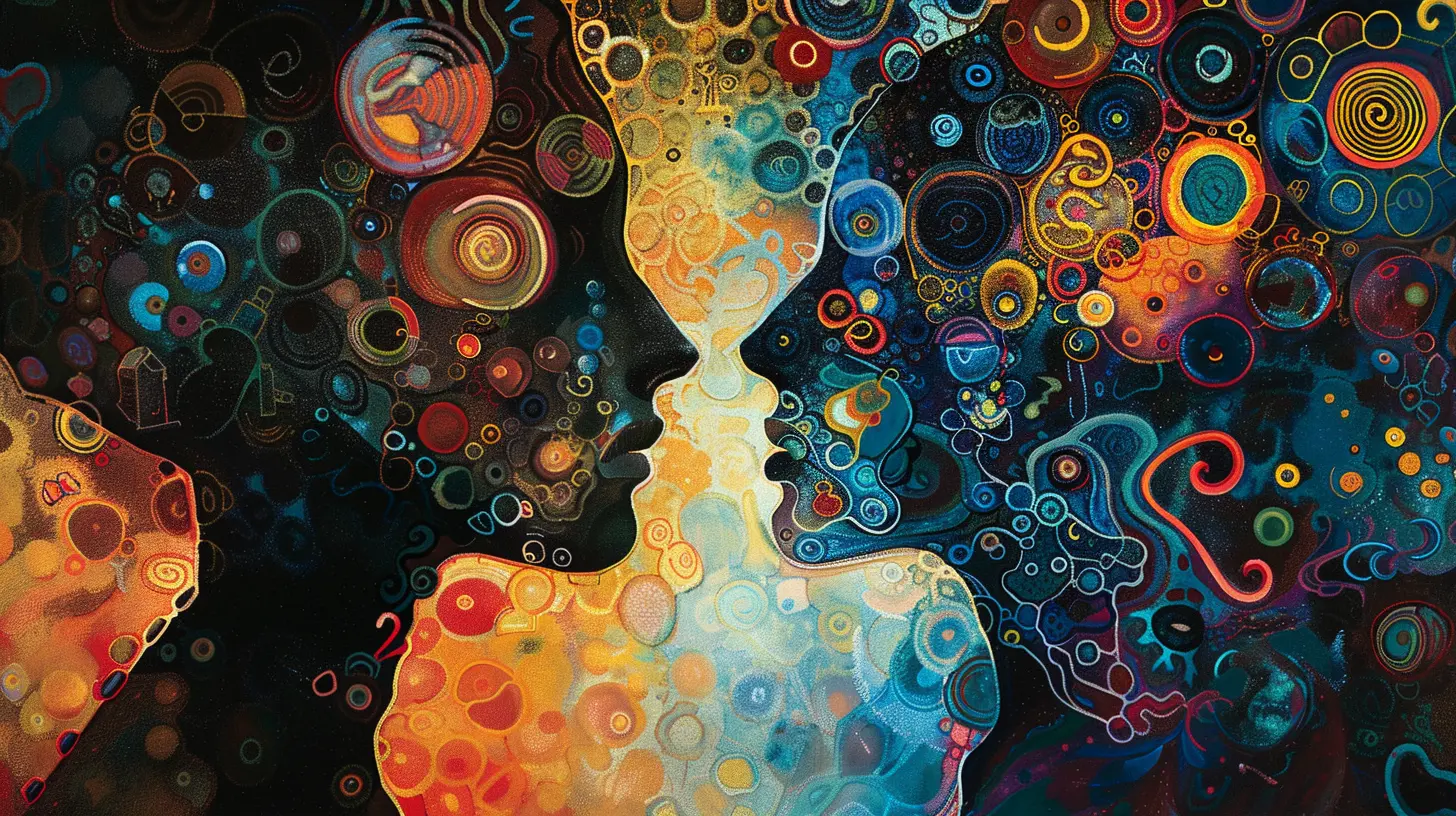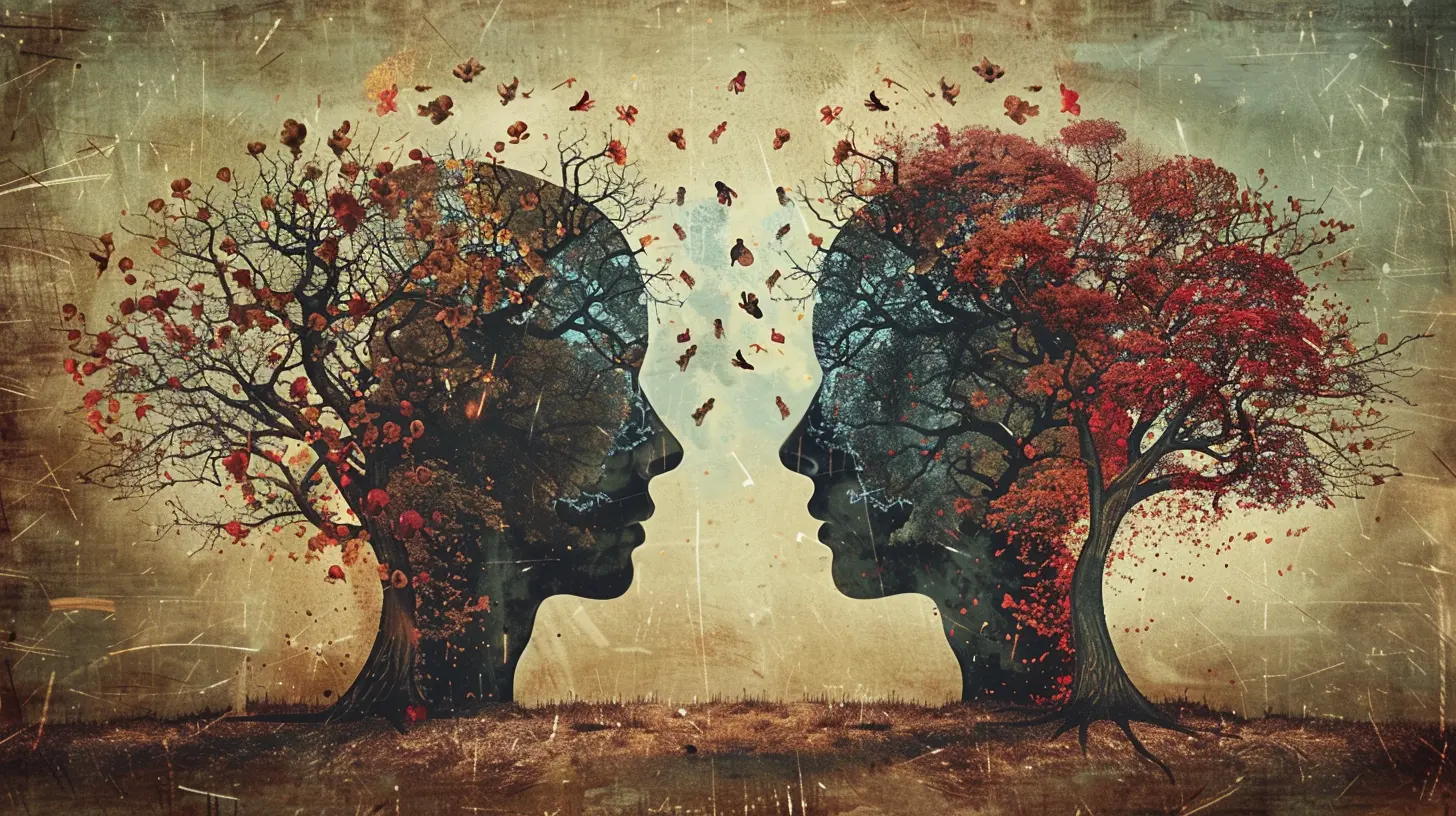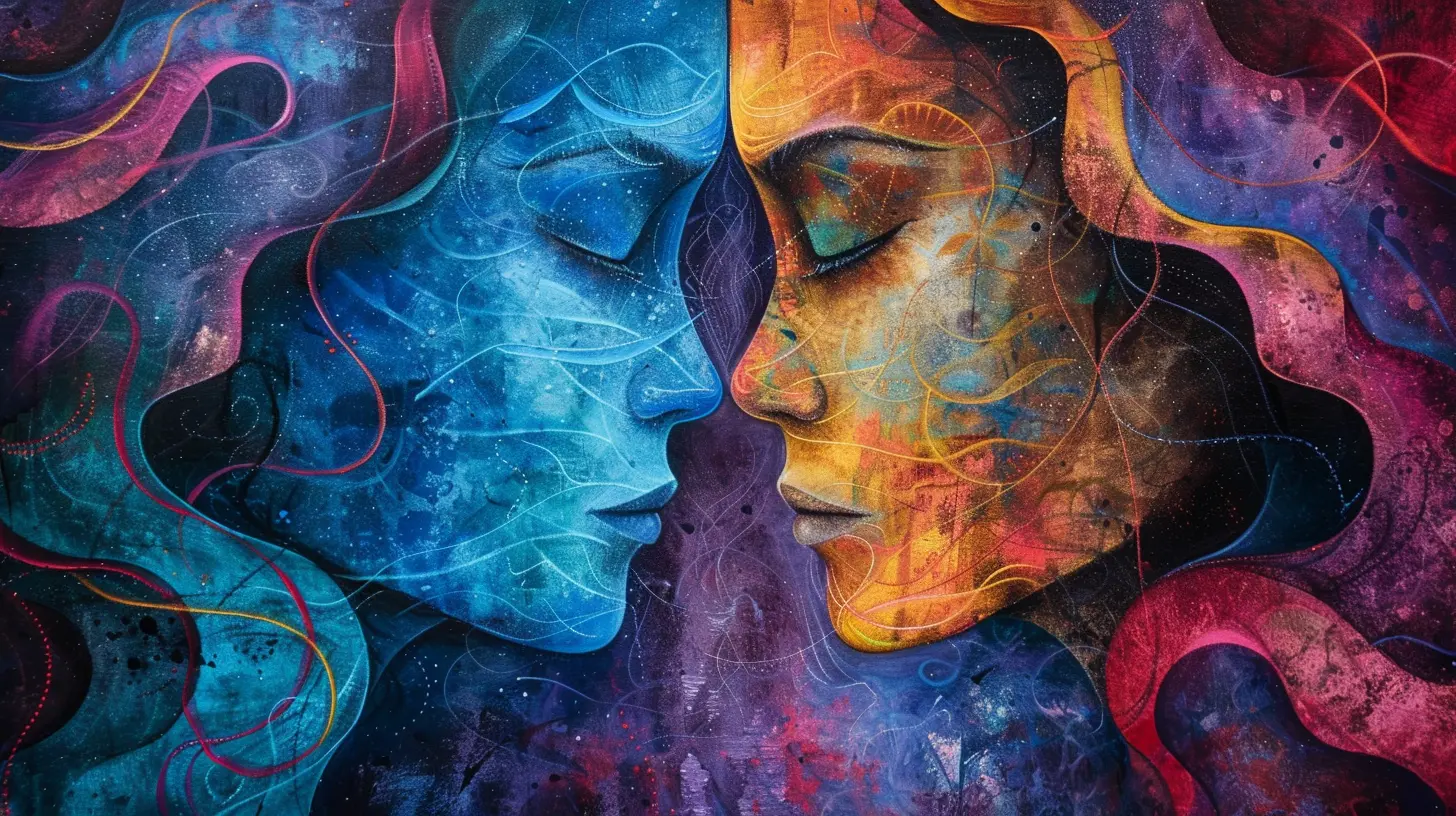The Role of Sexuality in Psychoanalytic Thought: From Freud to Lacan
5 April 2025
When you think of psychoanalysis, one of the first things that likely comes to mind is Sigmund Freud and his fascination with sexuality. It's hard to even mention psychoanalysis without bringing up his work. But what’s really fascinating is how Freud’s ideas on sexuality have evolved and been reinterpreted by later thinkers, especially Jacques Lacan. From Freud's controversial theories about childhood sexuality to Lacan's complex linguistic twist on desire, sexuality has been a central theme in psychoanalytic thought for over a century.
In this article, we’ll take a deep dive into how sexuality has shaped psychoanalytic theory, starting with Freud and ending with Lacan. And don’t worry—while we’ll touch on some complex ideas, I’ll keep it conversational, engaging, and easy to follow. Let’s explore how these two psychoanalytic giants contributed to our understanding of human sexuality.

Freud: The Father of Psychoanalysis and Sexuality
When it comes to Freud, you could say he never shied away from controversial topics, especially when it came to sex. For Freud, sexuality wasn’t just about the physical act—it was part of human development, shaping our psyche from birth. His ideas were groundbreaking, but they were also scandalous at the time. So, what exactly did Freud say about sexuality?The Libido and the Pleasure Principle
Freud introduced the concept of the libido, which he described as the driving force behind all human behavior, rooted in our sexual energy. According to Freud, from the moment we are born, the libido sets the stage for our psychological development. This is where his famous pleasure principle comes in: the idea that human beings are motivated by the desire to seek pleasure and avoid pain.But hold on, it’s not just about adult sexuality. Freud argued that we begin experiencing sexual desires as infants. Yep, you read that right—Freud believed that even infants have sexual urges.
Psychosexual Stages of Development
One of Freud’s most well-known (and controversial) theories is the psychosexual stages of development. He believed that as we grow up, we go through different stages where our libido focuses on different parts of our body:1. Oral Stage (0-1 years): The mouth is the primary source of pleasure. Babies get satisfaction from sucking and biting.
2. Anal Stage (1-3 years): Pleasure shifts to controlling bladder and bowel movements. Freud saw potty training as a significant event in this stage.
3. Phallic Stage (3-6 years): This one’s the most famous (or infamous). Freud believed children become aware of their genitals, leading to the Oedipus Complex.
4. Latency Stage (6-puberty): Sexuality goes into "hibernation" while children develop social skills and friendships.
5. Genital Stage (puberty onward): Sexual urges resurface in a mature form, focusing on relationships with others.
Freud’s emphasis on the Oedipus Complex—where boys supposedly develop desire for their mothers and jealousy toward their fathers—sparked much debate. But Freud saw this as a critical moment in a child's psychological development.
Sexuality and Neurosis
Freud went even further, claiming that many psychological disorders, or neuroses, were caused by unresolved sexual conflicts from childhood. For instance, if someone didn’t properly resolve the issues in their Oedipal phase, they might develop neuroses or fixations in adult life. Freud saw repression of sexual desires as a key factor in mental illness.For Freud, sexuality wasn’t just one aspect of life; it was the key to understanding the human mind. Even if some of his ideas have been largely discredited or criticized, there’s no denying that Freud placed sexuality at the heart of psychoanalytic theory.

Lacan: A Linguistic Twist on Freud’s Sexuality
If Freud gave us the foundation for understanding sexuality in psychoanalysis, then Jacques Lacan took a sledgehammer to that foundation and rebuilt it with a new angle. Lacan’s theories are notoriously complex, but his work on sexuality is both fascinating and important.The Symbolic, Imaginary, and Real
Lacan reinterpreted Freud’s theories, but he approached them through the lens of language and symbolism. One of Lacan’s big contributions was his theory of the three orders: the Imaginary, the Symbolic, and the Real. Don't worry if that sounds abstract—it is. I’ll break it down.1. The Imaginary: This is the realm of images and illusions. It’s how we form our identities through mirrors and reflections, both literally and metaphorically.
2. The Symbolic: This is the world of language, rules, and structures—basically, society’s laws and norms. It’s through language that we enter the Symbolic order, shaping our desires and understanding of the world.
3. The Real: This is the most elusive category. It’s what can’t be captured by language or imagery—essentially, everything that resists symbolization.
Desire and the Lack
One of Lacan’s most important contributions to psychoanalytic thought is his theory of desire. While Freud saw desire as rooted in the libido and sexual drives, Lacan believed that desire is linked to lack. According to Lacan, we are always chasing something that we can't quite grasp, something that remains out of reach. Desire is born not simply from our biological urges but from the gaps in our experience—the things we feel are missing.Lacan famously said, "Desire is the desire of the Other." This means that our desires are shaped by the desires of those around us. In other words, what we want is influenced by what we think others want or expect from us. It’s a bit like when you're in a crowded room and everyone suddenly wants the same thing, even if they didn’t want it before—it’s the influence of the group or society shaping individual desires.
The Phallus and Sexual Difference
In Lacan’s framework, the phallus plays a central role in understanding sexual difference. But don’t get this confused with the literal penis—Lacan’s phallus is more symbolic. It represents the power and authority of language and social order. In this sense, the phallus is not just a male organ but a symbol of the structure of desire.Lacan’s take on sexual difference isn’t about biological gender but about how males and females relate to the phallus as a symbol of lack. For Lacan, both men and women are defined by their relationship to this symbolic lack. Men are seen as having the phallus (in a symbolic sense), while women are seen as being the phallus, embodying the symbolic lack that generates desire.
Jouissance: Beyond Pleasure
Lacan also introduced the concept of jouissance, which can be loosely translated as "enjoyment" but goes beyond mere pleasure. While Freud focused on pleasure as something that comes from satisfying the libido, Lacan argued that jouissance is an excessive form of pleasure that can actually be painful. It’s linked to the idea of transgressing boundaries and going beyond what is socially or morally acceptable.Jouissance is that point where pleasure turns into something too much to handle, like eating too much cake and feeling sick afterward. It’s a mix of pleasure and pain, a concept that helps explain why some people pursue desires that ultimately hurt them.

Key Differences Between Freud and Lacan
So, what’s the main difference between Freud and Lacan when it comes to sexuality?- For Freud, sexuality is primarily a biological drive, centered on the libido and physical pleasure.
- For Lacan, sexuality is more about language, desire, and the symbolic structures that shape our understanding of lack and fulfillment.
Freud saw sexual development as progressing through specific stages, while Lacan believed that desire is never fully satisfied and is always tied to our relationships with others and the symbolic order.

Why Does This All Matter?
You might be wondering why we should care about these complex theories of sexuality. After all, Freud and Lacan have been criticized for being too abstract or even outdated in some respects. But their ideas still matter today because they offer a framework for understanding how our desires and sexual identities are shaped—not just by biology but by culture, language, and society.In a world where conversations about sexuality are becoming more open and fluid, Freud and Lacan provide insight into the deeper psychological forces at play. Whether you agree or disagree with their theories, they remind us that sexuality is not just about reproduction or pleasure—it’s a fundamental part of the human condition that influences how we relate to ourselves and others.
Conclusion
From Freud’s emphasis on the libido and psychosexual development to Lacan’s complex theories of desire and the symbolic order, sexuality has been a central theme in psychoanalytic thought. While Freud focused on biological drives and developmental stages, Lacan shifted the conversation toward language, desire, and lack. Both theorists have left a lasting impact on how we think about sexuality, and their ideas continue to influence psychology, philosophy, and even pop culture.At the end of the day, whether you're a fan of Freud’s Oedipus Complex or Lacan's symbolic phallus, their theories challenge us to think more deeply about the role of sexuality in shaping who we are. And who knows? Maybe you’ll even start noticing how much of your own life is driven by desires you hadn’t thought about before.
all images in this post were generated using AI tools
Category:
PsychoanalysisAuthor:

Alexandra Butler
Discussion
rate this article
5 comments
Samuel McKinnon
This article insightfully explores how sexuality has evolved in psychoanalytic theory, highlighting key shifts from Freud's foundational ideas to Lacan's complex interpretations. A thought-provoking read for anyone interested in psychological dynamics.
April 21, 2025 at 5:03 PM

Alexandra Butler
Thank you for your thoughtful comment! I'm glad you found the exploration of sexuality in psychoanalytic theory insightful.
Pia Jimenez
In the dance of desire, minds entwine, Freud whispers secrets, Lacan reshapes the line. Sexuality, a prism of the psyche’s art, Unveils the soul's labyrinth, where shadows start.
April 12, 2025 at 4:42 AM

Alexandra Butler
Thank you for your poetic insight! It beautifully captures the essence of how Freud and Lacan explore the complexities of desire and the psyche.
Theodora Cook
This exploration of sexuality in psychoanalytic theory reveals not only the complexities of desire and identity but also challenges us to reconsider how our unconscious shapes our relationships, prompting a deeper understanding of human nature beyond societal norms and expectations.
April 11, 2025 at 4:25 AM

Alexandra Butler
Thank you for your insightful comment! Indeed, exploring sexuality in psychoanalysis deepens our understanding of desire and identity, urging us to reflect on the unconscious influences that shape our relationships beyond societal constraints.
Hannah McCarthy
Ah yes, because nothing says ‘healthy mind’ like Freud's obsessions!
April 8, 2025 at 3:55 AM

Alexandra Butler
Freud's ideas sparked important discussions about the complexities of the mind, including sexuality's role in shaping our psyche, even if his views are now debated.
Daisy Kelly
This article effectively highlights the evolution of sexual theory in psychoanalytic thought, tracing its development from Freud's foundational concepts to Lacan's intricate interpretations. By examining sexuality's multifaceted roles, the piece underscores its significance in understanding human behavior and the complexities of the psyche, fostering deeper insights into contemporary psychoanalytic practice.
April 7, 2025 at 2:50 PM

Alexandra Butler
Thank you for your insightful comment! I'm glad the article resonated with you and effectively captured the evolution of sexual theory in psychoanalysis.




